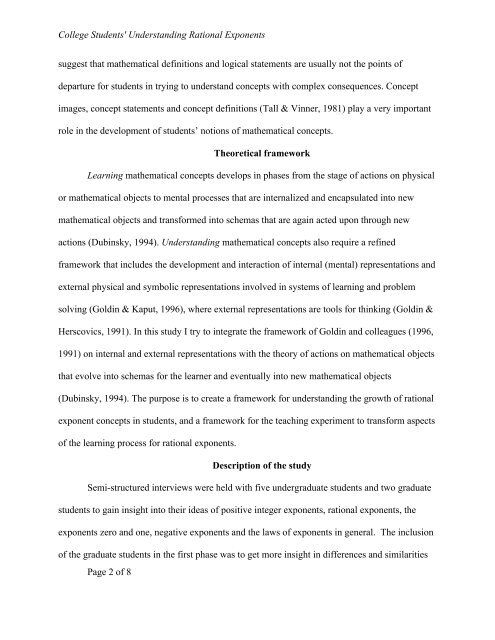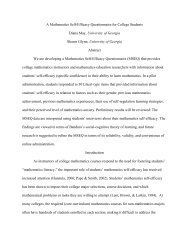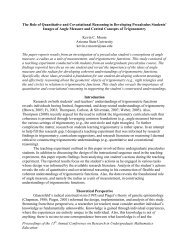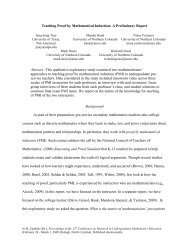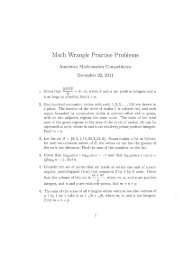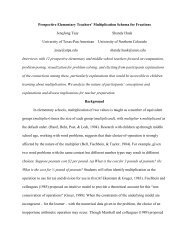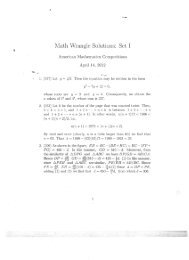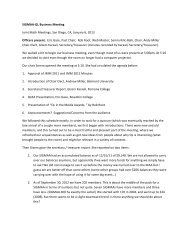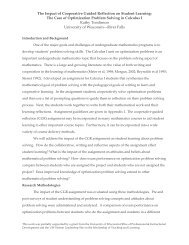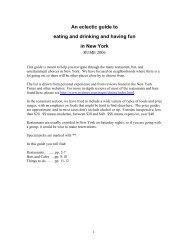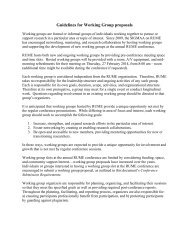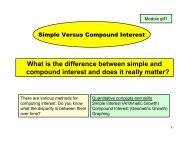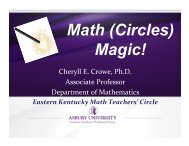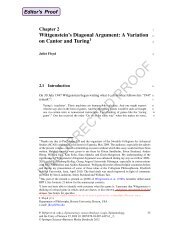Understanding of Rational Exponents - Mathematical Association of ...
Understanding of Rational Exponents - Mathematical Association of ...
Understanding of Rational Exponents - Mathematical Association of ...
Create successful ePaper yourself
Turn your PDF publications into a flip-book with our unique Google optimized e-Paper software.
College Students' <strong>Understanding</strong> <strong>Rational</strong> <strong>Exponents</strong>suggest that mathematical definitions and logical statements are usually not the points <strong>of</strong>departure for students in trying to understand concepts with complex consequences. Conceptimages, concept statements and concept definitions (Tall & Vinner, 1981) play a very importantrole in the development <strong>of</strong> students’ notions <strong>of</strong> mathematical concepts.Theoretical frameworkLearning mathematical concepts develops in phases from the stage <strong>of</strong> actions on physicalor mathematical objects to mental processes that are internalized and encapsulated into newmathematical objects and transformed into schemas that are again acted upon through newactions (Dubinsky, 1994). <strong>Understanding</strong> mathematical concepts also require a refinedframework that includes the development and interaction <strong>of</strong> internal (mental) representations andexternal physical and symbolic representations involved in systems <strong>of</strong> learning and problemsolving (Goldin & Kaput, 1996), where external representations are tools for thinking (Goldin &Herscovics, 1991). In this study I try to integrate the framework <strong>of</strong> Goldin and colleagues (1996,1991) on internal and external representations with the theory <strong>of</strong> actions on mathematical objectsthat evolve into schemas for the learner and eventually into new mathematical objects(Dubinsky, 1994). The purpose is to create a framework for understanding the growth <strong>of</strong> rationalexponent concepts in students, and a framework for the teaching experiment to transform aspects<strong>of</strong> the learning process for rational exponents.Description <strong>of</strong> the studySemi-structured interviews were held with five undergraduate students and two graduatestudents to gain insight into their ideas <strong>of</strong> positive integer exponents, rational exponents, theexponents zero and one, negative exponents and the laws <strong>of</strong> exponents in general. The inclusion<strong>of</strong> the graduate students in the first phase was to get more insight in differences and similaritiesPage 2 <strong>of</strong> 8


